By Tim Cornwell
Did you hear the one about Harvard University giving a grant to an Iranian-Jewish comedian to make a one-woman show in the name of bringing peace to the Middle East?
Noam Shuster-Eliassi’s working title for her planned hour of stand-up, in English, Hebrew and Arabic is “Coexistence My Ass.”
“I’m of Iranian descent, I speak Arabic, it’s a total mess,” says the 33-year-old comedian in a Kayhan Life interview.
A graduate of Brandeis University in Massachusetts who studied acting for a year, she is developing her show on a fellowship at Harvard University’s department of religious and theological studies, its prestigious Divinity School. The Harvard Divinity school’s Religion, Conflict, and Peace Initiative aims to develop leadership and scholarship, supporting cultural actors and artists working on the Middle East in a creative way.
[aesop_image img=”https://kayhanlife.com/wp-content/uploads/2020/03/41784b15-51df-47e0-a238-b32168d8d4a0.jpeg” panorama=”off” credit=”Noam Shuster-Eliassi performing in East Jerusalem. ” align=”center” lightbox=”off” captionsrc=”custom” captionposition=”left” revealfx=”off” overlay_revealfx=”off”]
A year ago, she came up with a gag that shot her into the spotlight. Speaking to an Arabic- language Israeli news channel, she joked that as a “tall and strong girl” — she’s 1.80 meters tall — she struggled to find a husband who was the right size. She suggested that Prince Mohammad bin Salman would be a good candidate, given that relations were warming between Israel and Saudi Arabia.
The clip went viral in the Arab media, with some surprisingly earnest discussions of her proposal, so much that both Al-Jazeera and the BBC Arabic service featured it in their broadcasts.
The Iranian media then chimed in, but with the angle that the Arab commentators had missed the joke.
“I didn’t know which conflict I was in, between the Jews and the Arabs or the Iranians and the Arabs,” she said.
The Iranian-American comedian Maz Jobrani, a member of the “Axis of Evil” comedy troupe, asked her to join one of his shows in Boston after he saw the clip.
[aesop_image img=”https://kayhanlife.com/wp-content/uploads/2020/03/DB8A2247-0D48-467E-BCCE-8F95A5AE877B-scaled.jpeg” panorama=”off” credit=”Noam Shuster-Eliassi with Maz Jobrani. ” align=”center” lightbox=”off” captionsrc=”custom” captionposition=”left” revealfx=”off” overlay_revealfx=”off”]
“I thought it was a courageous way to make a joke that was both funny and political,” he said in an email interview.
For comedians from the Middle East, “as long as you tell your story and speak your truth, there will be an appetite for you,” Jobrani added. It doesn’t matter what part of the world you’re from. If you’re telling your story in an authentic way you will connect with diverse audiences from around the world.”
After working for a United National affiliated organization trying to build bridges in Israel, she switched to comedy because “comedy allowed me to stop giving answers to people. I was expected as an activist to give analysis, a solution and what’s going to be solved. Comedy allows me to stop doing that, embrace the messiness, talk about the confusing s***.”
Shuster-Eliassi’s Iranian grandmother and infant mother moved to Israel in 1957. Her father was the child of Romanian Holocaust survivors. She was raised speaking Hebrew and Arabic in a peace village near Tel Aviv, where Palestinian and Jewish Israeli families committed to living and educating their children together.
The language she could not speak, particularly to her grandmother, was Persian. She became fascinated by her family’s Iranian past, which was kept hidden away as they embraced life in the new Jewish homeland.
The result: She is a “mixed child” of a divided Middle East. Only comedy, she says, allows her to address the mess of feeling “choked.”
After doing voluntary national service in Israel rather than serving in the Israeli defense Forces, she became the first Jewish comedian invited to the 1001 Laughs Palestine Comedy Festival in East Jerusalem in 2018. She broke the ice by joking that she only planned to stay seven minutes, not 70 years. — though a return visit was cancelled in 2019.
Later that year, she was named New Jewish Comedian of the Year in London. She didn’t quite know what it meant, she said, but she had wanted to perform for serious judges.
She has since performed in Rwanda and Berlin. She was recently named an ambassador for One Young World, a global leadership forum based in Britain.
“I often wonder why I am so connected to my Persian roots,” says the comedienne. “I have never been to Iran and as a female performer, I won’t be able to be on stage in today’s Iran. But roots are strong. My family can never forget about the Iran they remember and love, the Iran I smell in my mother’s kitchen and the Iran I feel when she hugs me and speaks about her memories. It’s complex to be living in Israel with vivid positive memories from Iran. Jews have a rich history of thousands of years there, and by coming to Israel, some of it was taken from us.”
She would love to travel to Iran, to visit her family roots, but says she understands that an “oppressive regime” needs to change. “Even if I could go to Iran, I cannot perform there as a woman. I’m not living in a fantasy that everything’s perfect. I’m not idealizing Iran.”
Shuster-Eliassi’s Twitter profile photo shows her amid shelves full of Persian carpets, in Jaffa. Her tweet about her first day in Farsi class got hundreds of likes.
“I had to make it all the way to Harvard to start taking Farsi classes, my mother tongue,” she wrote.
Her grandparents arrived in Israel in 1957 — with her mother, an infant, and seven uncles and aunts. They brought little with them, but there were rugs. One was sold, or so the story goes, to buy a fridge. Another still adorns an aunt’s home.
The “Israeli establishment,” she said, swapped her grandmother’s Persian name Muluk for the more Israeli Malka; her mother’s name changed from Touran to Ruti.
“My grandmother is alive today,” Shuster-Eliassi said. “We don’t know exactly how old she is. Every time I ask her if she misses Iran, she says, ‘very much.’ They lived poor but they had neighborhood and family and food. She misses Iran.”
[aesop_image img=”https://kayhanlife.com/wp-content/uploads/2020/03/with-granny-i92309.jpg” panorama=”off” align=”center” lightbox=”off” captionsrc=”custom” caption=”Noam Shuster-Eliassi with her grandmother. ” captionposition=”left” revealfx=”inplaceslow” overlay_revealfx=”inplaceslow”]
The Jewish community in Iran dates back 2,700 years, to the Assyrian exile of several thousand ancient Israelites. Estimates vary widely, but by 1948, with the founding of the state of Israel, the Iranian Jewish community numbered 100,000 or more. By the 1950s, about a third had emigrated to Israel, many from poorer classes.
The family memory of Iran is mixed.Her grandfather, Abraham, worked in construction in the oil fields at Abadan: her older uncles remember the smell of oil, and American marines. When her grandmother married him and moved there, she adopted three children from two previous wives, who had died.The first child of her own died in infancy, but she had five more, in Iran and Israel. Shuster recently discovered that many people in Abadan speak Arabic.
“The memories are very rich and vivid but I had to go and dig them out,” she said. “My uncles have memories of stones being thrown at their house, together with the most wonderful experiences of being honored, of having good relations with neighbors.” The family were poor, in both Iran and Israel, she said, after a chaotic journey, and faced racism in Israel too, from the European Jewish establishment.
While she’s a Jewish woman doing comedy in America, Shuster-Eliassi says she feels her background is more in common with the immigrant Middle Eastern experience. “The manifestation of complex identity, experience, that might be specific to one context, but you take it and you make it universal so that other children of immigrants, in other contexts, will go “oh yeah my experience is like that too, my family comes from these backgrounds”.Her audiences run from Jewish mainstream to Arab and Iranian Americans.
“I do find that my kind of Persian background, Iranian background, it’s creating a lot of curiosity,” she says. “In every show there will always be a lot of Iranians in the audience, watching this Persian Jew who grew up in Israel but cannot let go of her roots.”

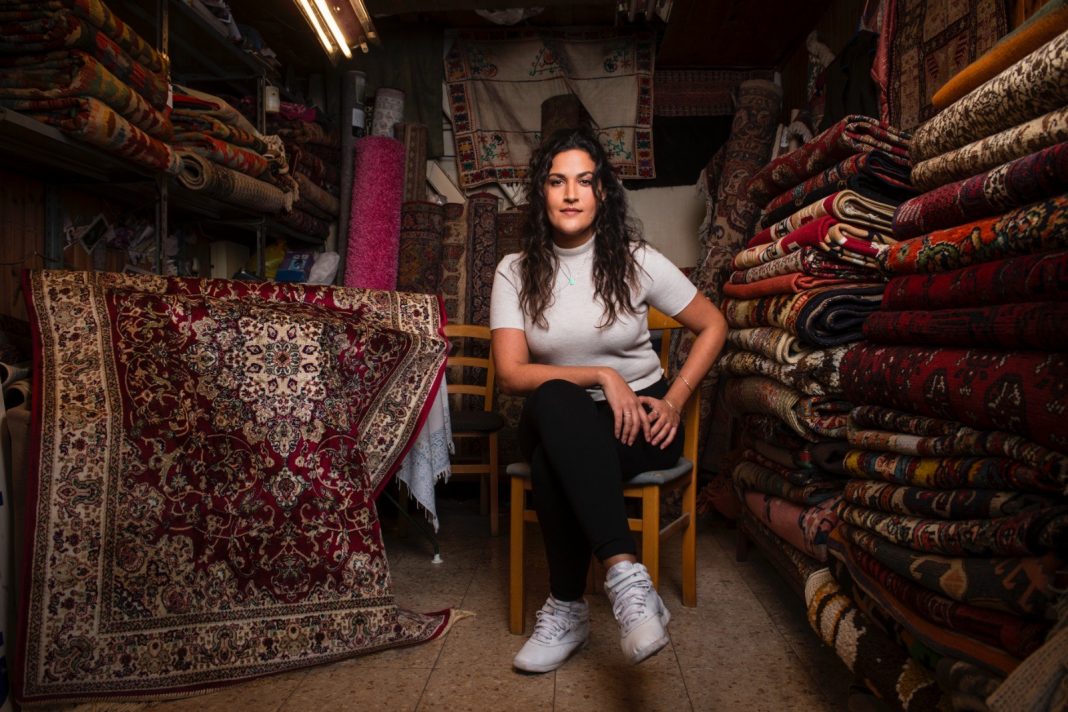
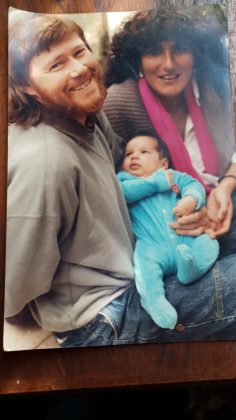
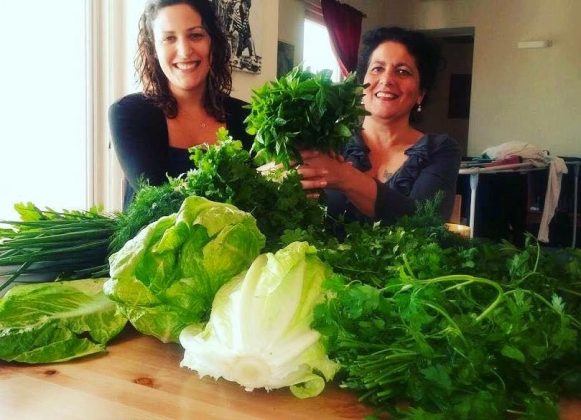
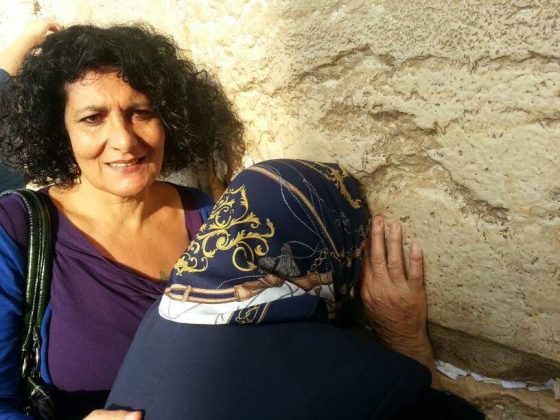
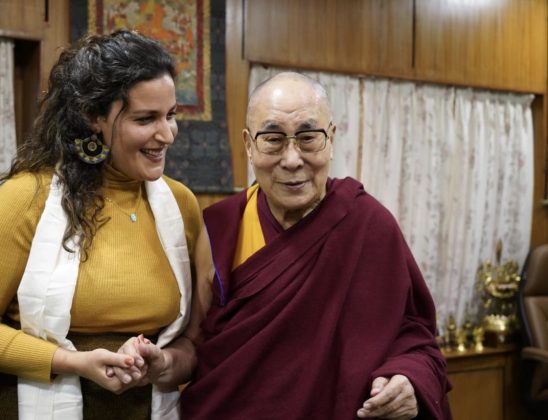
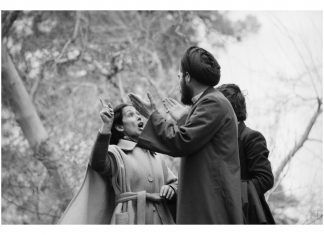
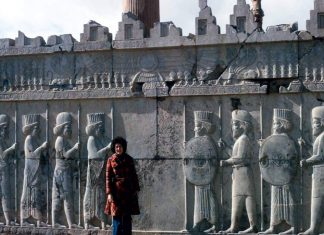

All the best to this lady. Her grandma’s name is the same as my mum’s. One day soon I hope we’ll have every one back home with us where they belong. 2700 years make these compatriots more Iranian than a lot of Iranians. Long live Iran.